
Gunfright is an action-adventure game developed by Ultimate Play the Game and published by U.S. Gold. It was first released for the ZX Spectrum in December 1985, then released for Amstrad CPC and the MSX the following year. The player takes the role of a sheriff in the town of Black Rock and is tasked with eliminating outlaws who are scattered throughout the settlement.
Vortex Software was a video game developer founded by Costa Panayi and Paul Canter in the early 1980s to sell the game Cosmos which Panayi had developed for the Sinclair ZX81. They converted the game to the ZX Spectrum, but due to the low sales of the ZX81 version they licensed the game to Abbex.
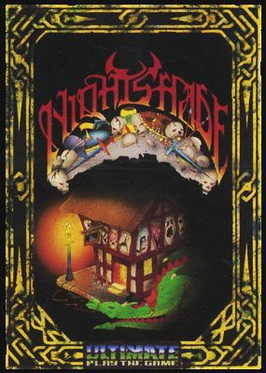
Nightshade is an action video game developed and published by Ultimate Play the Game. It was first released for the ZX Spectrum in 1985, and was then ported to the Amstrad CPC and BBC Micro later that year. It was also ported to the MSX exclusively in Japan in 1986. In the game, the player assumes the role of a knight who sets out to destroy four demons in a plague-infested village.

Rick Dangerous 2 is a platform game developed by Core Design for the Amiga, Atari ST, Amstrad CPC, ZX Spectrum, Commodore 64, and MS-DOS. It was released in 1990 and published by Micro Style as a sequel to Rick Dangerous.

Tornado Low Level is a multidirectional flight game developed by Costa Panayi and published in 1984 by the company he co-founded, Vortex Software. The game was first released for the ZX Spectrum, and later ported to the Amstrad CPC and Commodore 64.
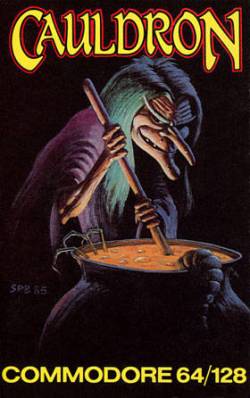
Cauldron is a video game developed and published by British developer Palace Software in 1985 for the ZX Spectrum, Commodore 64, and Amstrad CPC home computers. It contains both platform game and horizontally scrolling shooter sections. Players control a witch who aims to become the "Witch Queen" by defeating an enemy called the "Pumpking".

Aliens: The Computer Game is a 1986 video game developed by Software Studios and published by Electric Dreams Software initially for Amstrad CPC, Commodore 64 and ZX Spectrum. It is based on the film of the same title. Ports for the Commodore 16 and MSX were developed by Mr. Micro and published in 1987.

Highway Encounter is a video game published for the ZX Spectrum, Amstrad CPC, MSX, Commodore 64, Sharp MZ, and Tatung Einstein by Vortex Software in 1985. It was written by Costa Panayi who also coded Android, Android Two, TLL, Cyclone, and Revolution.
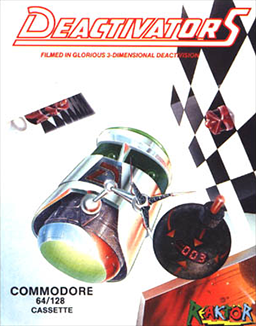
Deactivators is a 1986 puzzle video game designed by David Bishop and Chris Palmer, developed by Tigress Marketing and System Software, and published by Ariolasoft's action game imprint Reaktor. The player controls bomb disposal robots known as deactivators and must use them to deactivate bombs planted by terrorists in five research complexes. The concept for the game came from a brainstorming session between Bishop and Palmer; its design and development took five to six months to complete. It was released for the Amstrad CPC 464, Commodore 64, and ZX Spectrum platforms in October 1986.
Costa Panayi is a former computer game programmer active during the 1980s. He founded Vortex Software with Paul Canter, publishing games for the ZX Spectrum, Commodore 64 and Amstrad CPC.
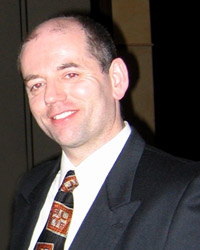
Mark Haigh-Hutchinson was an English video game developer. He is most notable for working on Zombies Ate My Neighbors, mid to late 1990s Star Wars titles, and the Metroid Prime games.
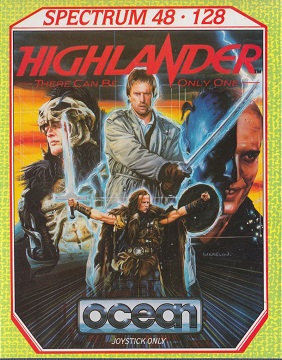
Highlander is a video game tie-in to the Highlander franchise released in 1986, the same year as the film, published by Ocean Software for the ZX Spectrum, Commodore 64 and Amstrad CPC home computers. Highlander was panned by reviewers.

Batman is a 1986 isometric action-adventure game by Ocean Software for the Amstrad PCW, Amstrad CPC, ZX Spectrum, and MSX, and the first Batman game developed. The game received favourable reviews. An unrelated Batman game was released two years later, titled Batman: The Caped Crusader.
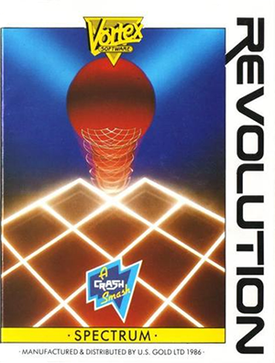
Revolution is an isometric 3D puzzle video game released by U.S. Gold in 1986 for the ZX Spectrum and Amstrad CPC. It was programmed by Costa Panayi and is a development of the earlier 3D games Highway Encounter and Alien Highway.

Short Circuit is a video game based on the 1986 film of the same name. It was developed and published by British company Ocean Software, and was released in Europe in 1987, for Amstrad CPC, Commodore 64 (C64), and ZX Spectrum. It was published again in 1989 as a budget re-release.

Death or Glory is a multidirectional scrolling shooter developed by Wise Owl Software and published by CRL Group in 1987 for the Commodore 64, ZX Spectrum, and Amstrad CPC. The player pilots a space ship and encounters an alien invasion that they then have to defeat. The game received average to negative reviews.

Throne of Fire is an action strategy video game. It was designed by Mike Singleton, developed by Consult Computer Systems, and published by Melbourne House. The game was released for the Amstrad CPC and ZX Spectrum in 1987. Throne of Fire is set in the Burning Citadel, located around the rim of a volcano.
Android One: The Reactor Run is a shoot 'em up maze video game written by Mark Haigh-Hutchinson and published by Vortex Software in 1983 for the ZX Spectrum and in 1985 for the Amstrad CPC.
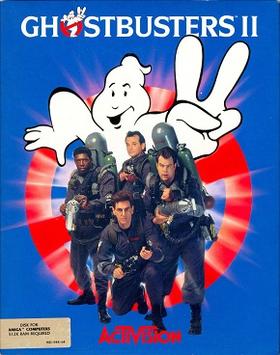
Ghostbusters II is a 1989 action game based on the film of the same name. It was published by Activision for various computer platforms. British studio Foursfield developed a version for Commodore 64, Amiga, Atari ST, Amstrad CPC and ZX Spectrum, which also got ported to the MSX by New Frontier. It features three levels based on scenes from the film. Dynamix developed a separate version for the DOS, also based on the film. The non-DOS versions were praised for the graphics and audio, but criticized for long loading times, disk swapping, and the final level. The DOS, Commodore 64 and Amiga versions were the only versions released in North America.

Judge Dredd is a 1991 platform shoot 'em up video game based on the character of the same name. It was developed by Random Access and published by Virgin Mastertronic. It was released in Europe in 1991, for the Amiga, Atari ST, Commodore 64, and ZX Spectrum. Critics found the gameplay repetitive.

















